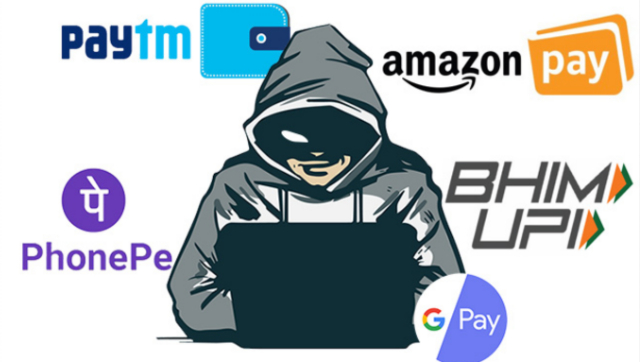UPDATE: The National Payments Corporation of India (NPCI) shared an official statement which has been added to the end of the article. In India, the pandemic boosted internet payments considerably. The extensive use of unified payment interface (UPI) applications for cashless money transfers in the country is still a comparatively new occurrence. That hasn’t prevented scam artists from coming up with novel methods to defraud people using popular mobile payment applications. According to accounts, scammers are deceiving users with a new “payment mistake” ploy. According to recent accounts, cybercriminals were able to steal over Rs 1 crore from just 81 individuals in Mumbai by taking advantage of people’s ignorance. The fraudster sends a small amount of money to the victim’s account using a UPI app, then says the transaction was a mistake. Following that, the target is asked to send money to the caller’s phone number. However, if the user returns the money using one of these UPI applications, the scammer will gain access to all of the user’s information, including bank information and KYC information such as PAN and Aadhaar. This information is adequate for the con artist to break into the victim’s bank account and cause further damage. This technique of operation, according to famous Delhi-based cybercrime expert Pavan Duggal, is a complex mix of malware phishing and social engineering. “This is a mix of malware phishing plus human engineering,” he said, emphasising the complexity of the situation. “Existing anti-malware software may not be sufficient to protect Mobile payment application users from this online fraud.” He recommends that users react to such calls by telling the con artist that they have reported the issue to their bank. Instead of paying it back through the app, Duggal recommends users to inform the caller to go to the nearest police station to collect up the cash. A picture of the payment being sent to a stranger is also not recommended because it creates personal contact and allows access to a lot of your private data. UPDATE: The National Payments Corporation of India (NPCI) shared a statement on the recent KYC scams. It reads: “With reference to recent media/social media articles on ‘KYC scams’ - The connection to UPI is misleading and incorrect. We assure all users that any payment through UPI does not expose the sender’s KYC details and neither does it lead to a user’s mobile or App getting hacked. UPI works on the principle of payment using a Virtual Payment address or UPI ID – using secure method of device binding and UPI PIN to transfer money. KYC details are not used or shared during a UPI transaction. We would like to reassure that UPI continues to remain a safe and secure payment method. The intention of some of these articles/ social media messages are to mislead and thereby create mistrust about a payment method that has been adopted widely across the country.” Read all the Latest News , Trending News , Cricket News , Bollywood News , India News and Entertainment News here. Follow us on Facebook, Twitter and Instagram.
Scammers in India looted over Rs 1 crore from just 81 Mumbai residents using UPI. The scammers first transferred a small amount of money to their victims, and then share a malware-infected link, asking them to pay them back.
Advertisement
End of Article


)

)
)
)
)
)
)
)
)



